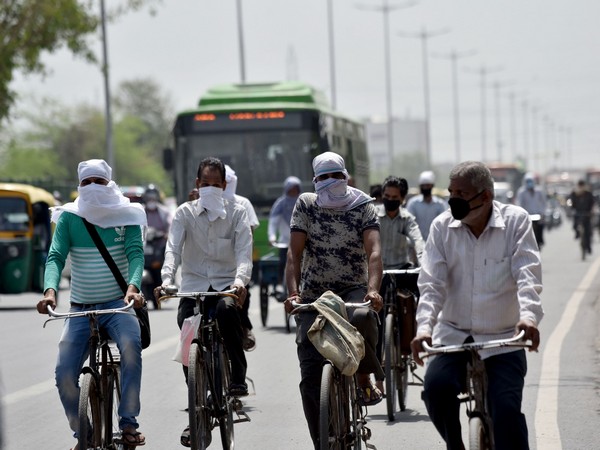New Delhi [India], June 20 (ANI): Amid the escalating heat wave conditions, the Disaster Management Authority (DDMA) on Wednesday issued dos and don’ts to help citizens minimise the impact of the heat wave and prevent serious ailments or even death due to heatstroke.
As per IMD, the maximum temperature of 43.6 degrees Celsius was recorded in the national capital on Wednesday.
As per the DDMA, citizens have been advised to avoid going out in the sun, particularly between 12 noon and 3 pm, which is when the sun’s rays are most intense.
The DDMA also recommends drinking plenty of water regularly, even if one does not feel thirsty, to stay hydrated.
DDMA has also suggested wearing lightweight, light-coloured, loose, and porous cotton clothes to keep cool and using protective gear such as goggles, umbrellas or hats, and shoes or chappals while venturing out in the sun.
DDMA has advised people to avoid strenuous activities when the outside temperature is high and to avoid outdoor work between 12 noon and 3 pm.
The DDMA has also advised people to carry water while traveling.
The DDMA also advises avoiding the consumption of alcohol, tea, coffee, and carbonated soft drinks, which can dehydrate the body. DDMA has also advised people to avoid high-protein food and stale foods.
DDMA advises people working outside to use a hat or an umbrella and a damp cloth on the head, neck, face, and limbs to help keep the body cool.
They have also advised not to leave children or pets in parked vehicles, which can quickly become dangerously hot.
In case of feeling faint or ill, DDMA advises people to seek immediate medical attention.
They have also advised people to use Oral Rehydration Solution (ORS), and homemade drinks like lassi, torani (rice water), lemon water, buttermilk to help rehydrate the body.
DDMA has also advised people to protect animals by keeping them in the shade and providing them with plenty of water to drink.
Finally, to keep homes cool, the DDMA suggests using curtains, shutters or sunshades and opening windows at night. They have also advised to use fans, damp clothing, and frequent baths in cold water can to help maintain a comfortable temperature indoors.
As per the IMD, heat waves are a period of unusually high temperatures as compared to what is normally expected over a region. A heatwave is considered if the maximum temperature of a station reaches at least 40 degrees Celsius or more for plains and at least 30 degrees Celsius or more for hilly regions. (ANI)












